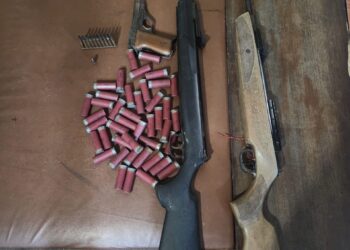• But, CG Says, Pre-Shipment, PAAR, Good For Nigeria
There were confirmations yesterday that the epileptic Customs server; the backbone of its novel Pre-Arrival Assessment Report (PAAR) has broken-down at all Customs formation nationwide
The failure which was first noticeable on Monday became pronounced yesterday when release of goods by Customs offices became impossible at all seaports, airports and land borders.
And giving an indication that the breakdown may cause large scale unrest at the various entry points, the Association of Nigerian Licensed Customs Agents (ANLCA) yesterday officially notified its members nationwide.
It however blamed the collapse on the service provider; Webb Fontaine. “The server infrastructure currently being provided by Webb Fontaine to support Customs releases of cargoes has ceased functioning since yesterday”, the statement which was made available to Shipping Position Daily confirmed .
This has affected cargo deliveries in all customs commands in Nigeria and it has put clog in the wheel of PAAR implementation”, it added.
But giving an indication that the breakdown is already causing anxiety, ANLCA also warned yesterday that, “this situation must be addressed before tempers rise to unbearable limit”
But the development coincided with the declaration by the Comptroller-General, Nigeria Customs Service (NCS), Alhaji Dikko Abdullahi Inde, that the PAAR was the best thing to have happened to the Nigerian business community.
Dikko said at the 2014 International Customs Day in Abuja on Monday that the pre-shipment inspection now known as Pre-Arrival Assessment Report (PAAR) had been acknowledged by international business community as innovative and highly successful.
He said that like PAAR, the Nigeria Trade Hub, also established by the government as part of platforms for facilitating trade in the country had been successful.
Represented by Mr John Ate, Customs’ Deputy Comptroller-General, Finance and Administration, Dikko said through the new regime the organisation had assembled relevant stakeholders in the trade chain for interaction “without physical contact”.
He said that uniqueness of the method being applied by Nigeria had resulted in the influx of Customs officers and businessmen from foreign countries into Customs headquarters in the country to understudy them.
Dikko attributed the efficiency of PAAR to effective communication, adding that the service was utilising the benefits of technology in its activities to ensure that leakages were eliminated in the system.
He charged all Customs formations to hold communication as a vital tool in Customs’ duties, assuring that every encouragement would be given to officials to perform their jobs diligently.
















Discussion about this post